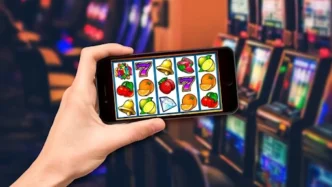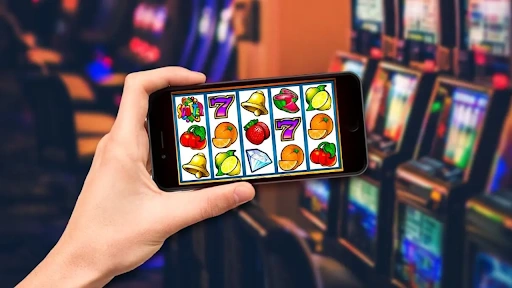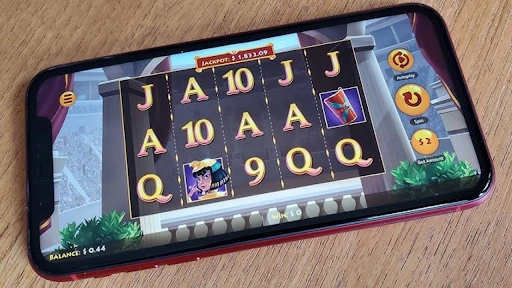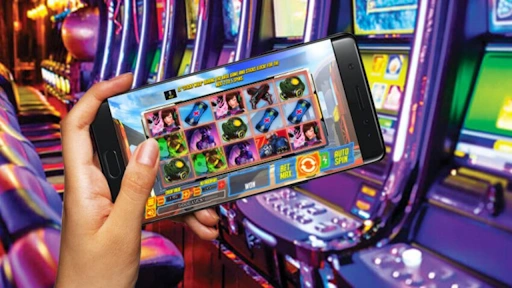In today’s digital landscape, iGaming has become a global phenomenon, attracting millions of players who seek both entertainment and the thrill of winning. With advancements in technology and increased internet accessibility, the iGaming industry has evolved rapidly, now covering a wide range of online gaming activities. As this sector grows, effective marketing strategies are essential for iGaming brands to connect with their target audience.
Social media has become a powerful tool in achieving these marketing goals, allowing brands to reach a diverse player base through targeted and engaging content. This guide explores the importance of social media marketing for iGaming, highlighting trends, audience insights, platform selection, and best practices to help iGaming operators build impactful marketing campaigns.
Related posts:
Definition of iGaming
iGaming refers to internet-based gambling activities, including online casinos, sports betting, poker, and other interactive games. This sector allows users to engage in real-time betting experiences from mobile devices or computers, providing ease of access. With iGaming’s rise, operators focus on innovative marketing strategies to reach potential players globally.
Importance of Social Media Marketing in the iGaming Industry
Social media marketing is vital in iGaming, enabling brands to reach, engage, and convert audiences in cost-effective ways. Platforms like Facebook and Instagram help iGaming operators share promotions, updates, and interactive content with potential players. Social media offers opportunities for real-time engagement, creating brand visibility and fostering loyalty among players.
Overview of the Current State of iGaming and Social Media Trends
Today, social media is central to iGaming growth, as platforms continually evolve with user-focused features. Trends like video content, live streaming, and influencer marketing have reshaped how iGaming brands connect with audiences. Adapting to these trends helps iGaming operators stay relevant, build engagement, and meet rising player expectations.
II. Understanding the iGaming Audience
- Demographics of iGaming Players
Understanding the demographics of iGaming players is essential for creating targeted marketing campaigns. iGaming attracts various age groups, though younger adults (ages 18-35) tend to be the most active. The gender distribution is fairly balanced, with both male and female players showing interest in different types of games. Additionally, iGaming audiences are spread globally, with high engagement in regions like Europe, North America, and parts of Asia.
-
Player Preferences and Behaviors
Player preferences in iGaming often vary based on the type of games and platforms available. Some players prefer traditional online casinos with slot games and table games, while others are drawn to sports betting, eSports, or virtual gaming experiences. Mobile gaming is also popular, as players enjoy the convenience of gaming on smartphones and tablets, making mobile optimization crucial for iGaming brands.
- Importance of Audience Segmentation for Targeted Marketing
Segmenting the audience is key to making social media marketing effective in iGaming. By categorizing players based on age, preferences, and gaming behaviors, brands can tailor their content to resonate with specific groups. This approach helps make marketing efforts more effective, leading to higher engagement and better overall results for iGaming campaigns.
III. Choosing the Right Social Media Platforms
-
Overview of Popular Social Media Platforms
For iGaming brands, picking the right social media platforms is important for reaching and engaging their target audience. Popular platforms include:
- Facebook: Known for its vast user base, Facebook allows iGaming brands to run targeted ads, post updates, and share promotions with a broad audience.
- Twitter: Twitter is ideal for real-time engagement, allowing iGaming brands to post live updates on events, share quick news, and interact directly with users.
- Instagram: With a focus on visuals, Instagram helps iGaming brands highlight game features, share promotions, and connect with players through stories and reels.
- YouTube: This platform is perfect for video content, such as game tutorials, highlights, and influencer partnerships, which build brand awareness.
- TikTok: Popular among younger users, TikTok offers unique opportunities for creative video content and viral challenges, making it a growing platform for iGaming engagement.
Pros and Cons of Each Platform for iGaming Marketing
Each social media platform has advantages and limitations when used for iGaming marketing. Facebook’s large audience reach is beneficial, though ad restrictions may limit some content. Twitter offers instant engagement, but posts have a short lifespan. Instagram allows for creative visuals but may require a steady flow of content to maintain visibility. YouTube provides rich video content options but can be time-consuming to manage. Finally, TikTok is good for reaching younger players. But, brands must stay updated with trends.
Identifying the Best Platforms Based on Target Audience
Selecting the best platforms depends on understanding the brand’s audience. For example, Instagram and TikTok work well for younger players, while Facebook and Twitter reach a broader age range. iGaming brands can analyze audience preferences. This will help them focus on the platforms where their audience is most active. It will ensure the right people see their content.
IV. Developing a Social Media Strategy for iGaming
- Setting Clear Marketing Goals
A successful social media strategy begins with well-defined marketing objectives. iGaming brands often aim to boost brand awareness, acquire new players, and increase engagement. Additionally, retention is crucial, as brands aim to keep players active and interested over time. Defining specific objectives helps structure campaigns and measure progress effectively.
- Content Planning and Creation
Content planning is essential for ensuring coherence across different social media platforms. iGaming brands can create a variety of content types, such as promotions, game highlights, and player tutorials. Schedule posts to maximize audience reach. Adjust frequency and timing for best results. A content calendar helps brands engage their audience. It builds excitement for new releases and events.
- Creating a Unique Brand Voice and Image
Developing a distinct brand voice is key for standing out in the competitive iGaming market. This involves choosing a tone—whether fun, exciting, or professional—that resonates with the target audience. Visual consistency, including colors, logos, and design style, reinforces brand identity across platforms. A recognizable brand image helps build trust and a comfortable atmosphere, facilitating the attraction and retention of players.
V. Engaging Content Ideas for iGaming
- Promotional Campaigns
Promotional campaigns are a great way to attract new players and keep existing ones engaged. iGaming brands can offer bonuses, exclusive deals, and limited-time offers. These encourage players to participate. Tournaments and competitions excite players. They compete for rewards and build community.
- User-Generated Content
User-generated content (UGC) builds authenticity and encourages player involvement. Brands can motivate players to discuss their experiences on social media. They can do this by featuring testimonials, success stories, or screenshots of big wins. Showing real player content adds credibility. It gives potential players a sense of the game.
- Interactive Content
Interactive content, like polls, quizzes, and contests, is highly effective for engaging audiences. Polls can involve players in decision-making, while quizzes entertain and inform. Live streaming events and gameplay let brands showcase games in real-time. This immersive experience can attract curious viewers and potential players.
VI. Compliance and Regulations in Social Media Marketing
- Overview of iGaming Regulations
The iGaming industry operates under diverse regulations that vary from one region to another. These regulations aim to protect players and ensure fair play. Marketers must know local laws on ads, age limits, and responsible gaming. Ignoring these regulations can lead to penalties or loss of operating licenses.
- Best Practices for Ethical Marketing
Adhering to ethical marketing practices is vital for building a trustworthy brand. iGaming companies should promote responsible gaming. Their messages must be clear and transparent. All promotions should include terms and conditions to prevent misleading claims. By prioritizing ethical marketing, brands can build trust with players. This will foster long-term relationships.
- Importance of Transparency and Responsible Gaming Messages
Transparency plays a vital role in building player trust. iGaming brands should warn of gambling risks and offer help resources. Brands can show their commitment to player safety. They can do this by adding responsible gaming messages to their social media content. This method not only safeguards players but also improves the brand’s reputation.
VII. Analyzing and Measuring Success
- Key Performance Indicators (KPIs) for Social Media Marketing
Measuring the success of social media marketing is essential for continuous improvement. Key performance indicators (KPIs) help iGaming brands track their progress. Important KPIs include:
- Engagement Rates: This measures how effectively content connects with the audience. High engagement means players are interacting with posts. This encompasses actions like liking, sharing, or commenting.
- Conversion Rates: Tracking conversion rates helps brands know how many users take action, like signing up or making a deposit, after seeing a social media post.
- Audience Growth: Monitoring the growth of followers and subscribers provides insight into brand reach and awareness over time.
- Tools for Tracking and Analyzing Social Media Performance
Various tools are available for tracking social media performance. Tools like Google Analytics, Hootsuite, and Sprout Social enable brands to collect data and create reports. These tools analyze metrics, track user behavior, and assess campaigns. Using data from these tools, iGaming brands can make informed decisions and adjust their strategies as needed.
- Adjusting Strategies Based on Analytics
Analyzing performance data is essential for enhancing marketing strategies. Brands should often review their KPIs. They should use the insights to find successful content and areas for improvement. If specific posts lead to higher engagement or conversions, brands can produce more of that content. iGaming brands can improve their social media strategies by being adaptable and data-driven.
VIII. Case Studies
- Successful iGaming Brands Leveraging Social Media
Examining successful Gaming brands offer valuable insights into successful strategies. For example, Brand A utilized Facebook to run targeted ad campaigns promoting exclusive bonuses. This method resulted in a notable increase in new player registrations. They also created engaging video content on YouTube, showcasing gameplay and player testimonials. As a result, they built a strong digital community and strengthened brand loyalty.
Brand B effectively used Instagram to connect with younger players. They created visually appealing posts and stories featuring game highlights and interactive polls. This strategy increased engagement rates and attracted a larger following. They collaborated with popular gaming influencers. This gained them new audiences and credibility.
- Lessons Learned and Best Practices from These Case Studies
From these case studies, several best practices emerge:
- Targeted Advertising: Using precise targeting helps brands reach the right audience effectively.
- Engaging Visual Content: High-quality visuals attract attention and enhance user engagement.
- Collaborations: Partnering with influencers expands reach and builds trust with potential players.
These lessons can guide other iGaming brands in creating effective social media strategies.
- Future Trends in Social Media Marketing for iGaming
- The Rise of New Technologies (AR, VR)
The future of social media marketing in iGaming will likely see the integration of new technologies like augmented reality (AR) and virtual reality (VR). These innovations can create engaging experiences that captivate players in distinct ways. For example, VR can let players enjoy a virtual casino from home. It enhances the gaming experience.
- The Impact of Evolving Player Expectations
As technology advances, player expectations will continue to evolve. Today’s players seek personalized experiences and interactive content. Brands that adjust to these evolving preferences will remain competitive in the iGaming market. Listening to player feedback and incorporating their suggestions can help brands stay ahead.
- Predictions for the Future of iGaming and Social Media
Looking ahead, social media marketing for iGaming will likely become more dynamic. With the rise of platforms like TikTok, brands need to constantly evolve their content strategies. As regulations evolve, compliance will remain a priority, ensuring brands market ethically and responsibly. The future is bright for iGaming brands that embrace creativity and adaptability in their social media strategies.
X. Conclusion
- Recap of the Importance of Social Media Marketing in iGaming
Social media marketing is crucial for iGaming brands looking to connect with players and grow their businesses. By leveraging various platforms, brands can increase visibility, connect with their audience and boost conversions
- Encouragement for iGaming Brands to Adopt Innovative Strategies
As the iGaming landscape continues to evolve, brands must adopt innovative strategies to stay competitive. Embracing new technologies, creative content, and ethical marketing practices will be crucial for sustained success.
- Final Thoughts on Staying Ahead in the Competitive iGaming Landscape
In conclusion, staying ahead in the iGaming market requires a proactive approach to social media marketing. By knowing the audience, choosing the right platforms, and consistently measuring success, brands can thrive in this dynamic industry.
XI. Additional Resources
- Recommended Reading and Tools
- Books: Look for books on digital marketing and social media strategies specific to the gaming industry.
- Blogs: Follow reputable blogs focused on iGaming marketing for the latest trends and insights.
- Online Courses or Webinars Related to iGaming Marketing
- Online Courses: Platforms like Coursera or Udemy often have courses focused on social media marketing and the iGaming industry.
- Webinars: Attend webinars hosted by iGaming experts for insights on effective marketing strategies.













